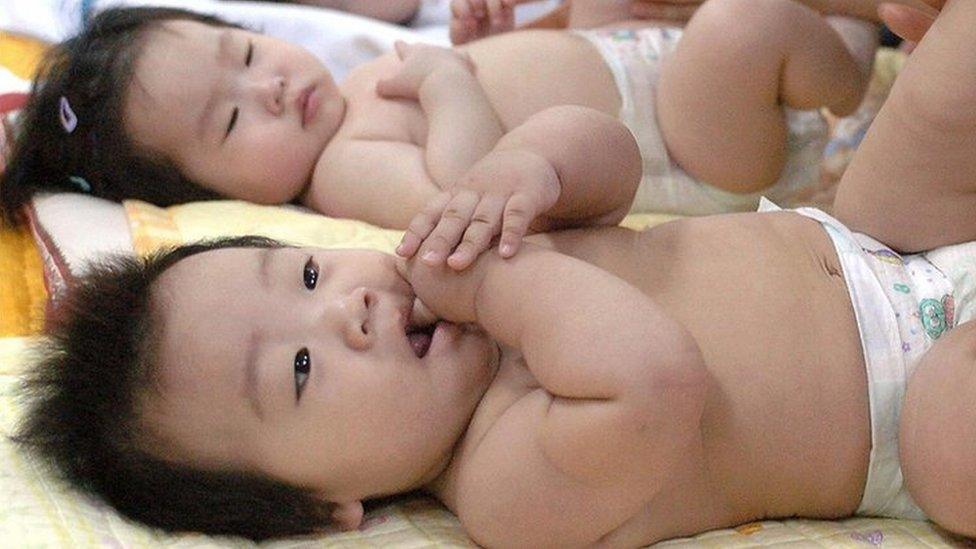Social media debate on Russia's declining birth rate
- Published
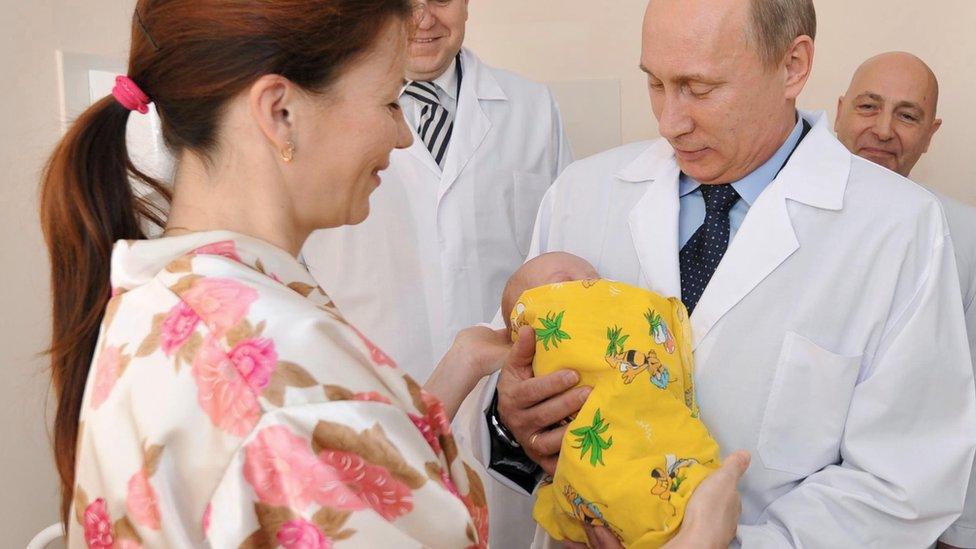
Vladimir Putin made boosting the birth rate a priority
The news of Russia's birth rate dropping by 10.6 per cent in 2017 to reach its lowest level in 10 years, despite government measures to boost fertility rate has prompted debate online.
Social media users in Russia have been sharing the statistic and debating on Russia's online platforms, with many blaming President Vladimir Putin's policies.
The majority of online commentators do not seem to have been taken by surprise with the news. Many pointed out that the authorities had previously claimed that "the birth-rate in Russia is rising faster than in Europe".
Other online users said the fallen birth rate was only a natural consequence of the country's current political course.
Exiled tycoon and founder of the Open Russia movement founder of the Open Russia movement Mikhail Khodorkovsky retweeted the news, external saying: "I think the reasons are many, but the lack of hope for the future is not the least important."
You might also like:
Former Deputy Premier Alfred Koh lambasts Russian authorities in previous years, for attempting to attribute a birth rate rise to Mr Putin's measures, saying it was due to "a generation of people born during a baby boom under Soviet leader Mikhail Gorbachev that has reached child-bearing age".
Mr Koh argues that the Kremlin should take responsibility for the current situation. In his Facebook post that has had over 700 likes and 100 shares, external, his reasons for the decreasing birth rate are: "When people's income is falling for a fourth year in a row, when we have incessantly been fighting since 2014, that we have broken off from the entire civilised world and that the poverty in Russia is shooting up".
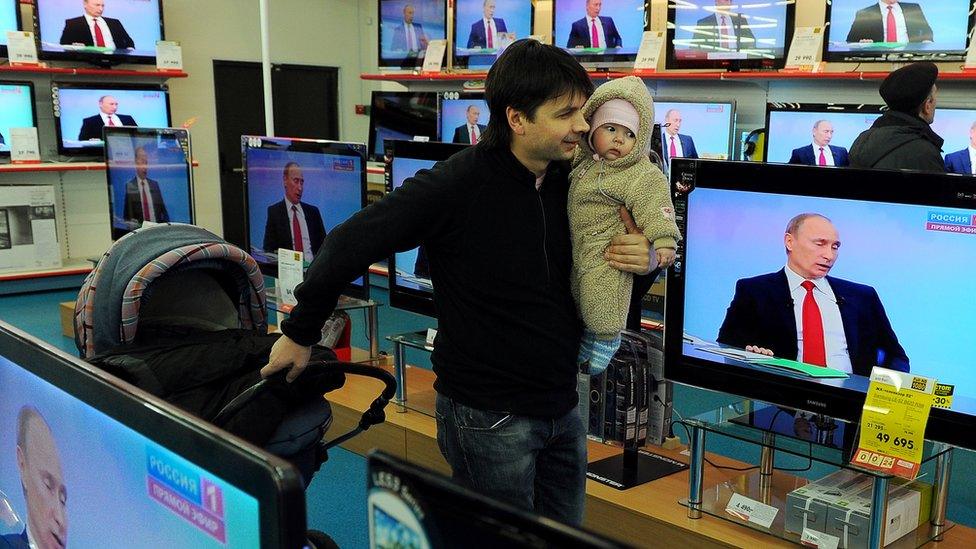
"By conducting a criminal social policy - cutting down on the number of schools and hospitals, not creating new jobs, driving young families into mortgage servitude for many years, depriving us of simple confidence in tomorrow - do the authorities really want to increase the birth rate in Russia?" one user on Twitter commented, external.
A popular blogger El Murid said on LiveJournal, external: "The Kremlin has got nothing to do with the previous spike in the birth rate. It has not left any reserves; people simply lack motivation to have children because you cannot give them anything besides poverty and the feeling of hopelessness. The current regime undoubtedly deserves credit for that."
"This is a trend that has long been predicted," said one commentator on a TJournal article, external.
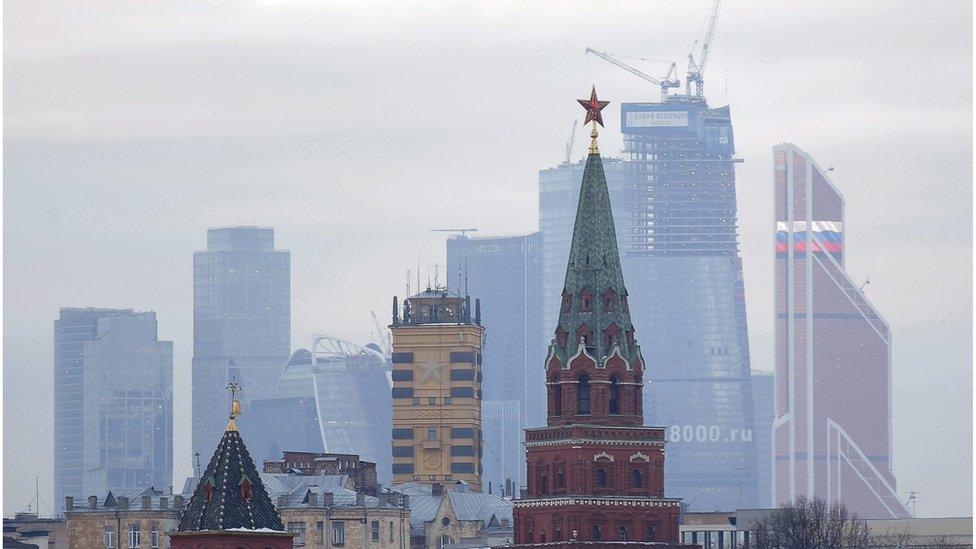
Some posted sardonic comments regarding the current regime in Russia. A meme that gained over 17,000 likes on VKontakte's (VK) community group page MDK read, external: Yeah right. It's the best time to have kids now because the country is flourishing."
One VK user posted, external: "The birth rate will soon disappear completely by 2024, at the end of yet another Putin term in office."
Since 2007, the Russian authorities have introduced a series of incentives aimed at boosting birth rates in the country.
- Published7 September 2017
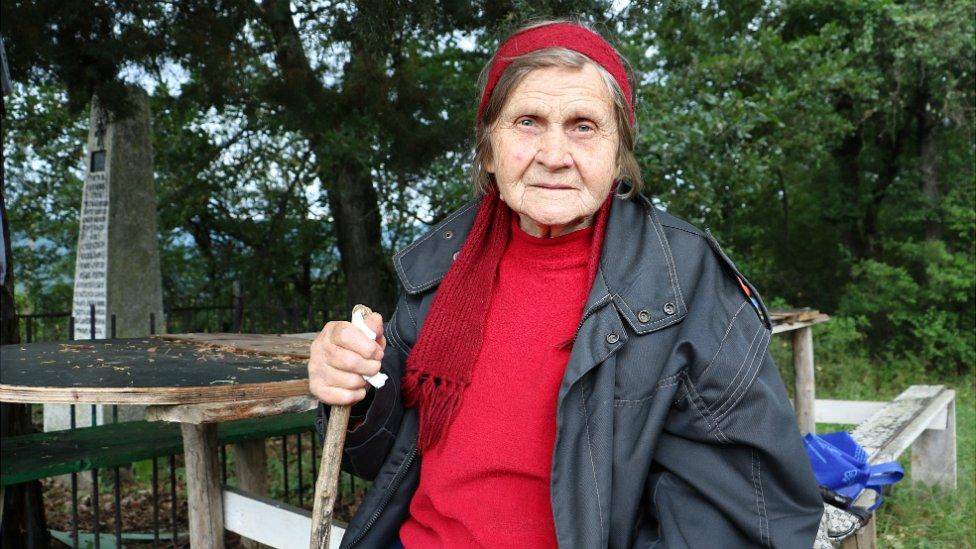
- Published30 July 2017
